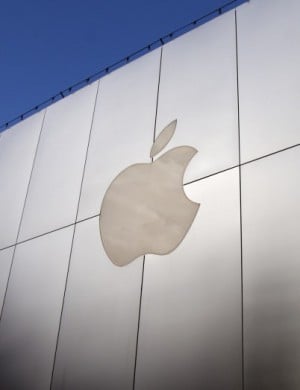Find out the week’s top mobile stories from around the world.
This week.. Mark Zuckerberg Faces Congress Over Facebook Data Privacy, India is now the world’s fastest-growing mobile payment market, Mobile phishing a growing threat, warns report, Google Goes To War Against Africa’s Slow Internet Speeds and much more.

Mark Zuckerberg Faces Congress Over Facebook Data Privacy Issues
Mobile Marketing Magazine
On Tuesday (10 April), Facebook CEO Mark Zuckerberg finally took on the US Senate in joint committee hearing. Zuckerberg was forced to field a barrage of questions from senators over a gruelling five-hour hearing where topics ranged from Cambridge Analytica to Russian meddling in elections.
What was supposed to be the chance for US lawmakers to crack Zuckerberg and Facebook didn’t quite work out, as the well-coached Facebook CEO rarely deviated from the talking points that he laid out in his prepared testimony.
The largely technologically illiterate group of senators failed to display any form of working knowledge of how social media and the internet works, let alone knowing anything about the inner workings of Facebook in particular.
Read more…
Are hardware makers doing enough to keep Android phones secure?
Tech Crunch
For all the good of Android’s open-source approach, one of the clear and consistent downsides is that the onus to issue software updates falls on the manufacturer. That can mean frustration for those waiting for the latest and greatest feature updates — and in some cases, it can put your phone at risk with delayed or missed security updates.
A pair of researchers at Security Research Labs recently shared a study with Wired highlighting some of these risks. The team’s findings are the result of testing 1,200 Android handsets from all the major manufacturers over the course of two years, examining whether manufacturers had offered the security patches as advertised.
According to SRL, missed security patches were discovered on a wide range of different handsets across manufacturers. Sony and Samsung were both flagged as having missed some security patches — in some cases in spite of reporting that they were up to date. “It’s almost impossible for the user to know which patches are actually installed,” one of the researchers told the site.
Read more…
Step aside, China: India is now the world’s fastest-growing mobile payment market
Tech in Asia
When the Indian government made a drastic move to ban 500 and 1,000-rupee currency notes in November 2016, the talk was mostly about fighting black money and the circulation of fake currency. A push towards a digital economy was mentioned mostly as an aside.
Though India’s central bank made it clear in its annual report last year that demonetization failed to purge black money, the ban forced people to go digital. The effects of that can now be seen.
According to research firm eMarketer, India is now the world’s fastest-growing “proximity mobile payment” market in the world. Proximity payments refer to scanning, tapping, swiping, or checking in with a mobile device at the point of sale.
Read more…
Vertical filmmakers winning in brand and video creation on mobile
The Drum
Trying to cram an ad designed for television into a mobile screen doesn’t work. The vertical space needs its own creative, so splicing ads meant for a bigger screen doesn’t often translate.
Many creators in the industry were brought up on horizontal video, but mobile has demanded that these conventions be reworked for a vertical screen, as Michael Gentile, director of BBDO Studios, BBDO New York explains.
“It’s like an artist who has comfortably painted with an easel and canvas for years and is now painting wall murals: the perspective has changed. It’s the same thing with creating content for mobile formats: we’re working with a new perspective, exploring a new creative space.”
Read more…
Mobile phishing a growing threat, warns report
Computer Weekly
The rate at which enterprise users are falling for phishing attacks on mobiles has increased 85% every year since 2011, research by mobile security firm Lookout shows.
Despite education around traditional phishing, 56% of Lookout users fell for a phishing link on their mobile device between 2011 and 2016, according to the firm’s latest report on mobile phishing.
Mobile users who clicked on a mobile phishing link did so an average of six times per year, the data shows. The report is based on analysis of anonymous data from more than 67 million mobile devices protected by Lookout since 2011.
Mobile devices are becoming a popular target for phishing attacks, the report said, because they are connected outside traditional firewalls, they typically lack endpoint security controls, they access a variety of messaging platforms, they hold a huge amount of personal and corporate data, and it is difficult to see the destination of links on mobile devices.
Read more…
Apple Pay launches in Brazil with Itaú
ZDNet
The Apple Pay partnership, launched on Wednesday, will be exclusive for 90 days and also involves local retailers such as supermarket chain Pão de Açúcar and restaurants, where discounts will be offered to those using the app.
As part of the deal, Itaú customers also get discounts in the purchase of Apple products. According to Itaú, the main goal of the partnership is to reduce friction for customers, avoiding issues such as payment delays in retail outlets.
Itaú has a customer base of about 60 million customers. The initial aim of the Apple Pay partnership is to reach 1,2 million of them.
Brazil is the 21st country where Apple Pay has been launched so far. According to Apple, some 67 percent of all point-of-sale terminals nationwide are ready to handle the transactions.
Read more…
Google Goes To War Against Africa’s Slow Internet Speeds
Data Economy
Google might not have announced a data centre on the African continent yet, but the company is committed to help the region make the most of internet services.
The search engine giant is placing its hopes on a new app – Google Go – designed to consume less data, require less bandwidth and work on any mobile device.
Launched in 26 countries in sub-Saharan Africa, the app takes up less than 5MB to download and it has also been created to take the minimum space possible on the user’s phone.
This is done simply through the latest version of Google’s advanced compression algorithm, using up to 40% less data to display search results, which can also be accessed when mobile data or WiFi settings are turned off.
Read more…
Big tech companies think they can make a lot of money from the world’s unbanked
Quartz
It sounds coldly capitalistic, but the world’s unbanked are becoming less of a philanthropic opportunity and more of a commercial one. Startups were already targeting the more than a billion people (pdf) who don’t have have a bank account, and now big tech companies are increasingly vying for their business. Americans without a bank will be able to deposit money into a PayPal account and spend it with a Mastercard. Amazon is trying to deepen its business in Mexico by launching its first-ever debit card there.
People outside the formal financial system—who may be poor, young, or recently immigrated—don’t have a way to safely save, borrow, or insure themselves (let alone hail an Uber). They’ve been overlooked by banks because it’s hard to make money on these customers using traditional models. Technology companies, however, crave scale, and many of the unbanked have mobile phones, which offers a way to tap these potential customers.
Read more…
Enterprise Mobility Needs A Full Security Stack To Comply With GDPR
Enterprise Mobility Exchange
The General Data Protection Regulation (GDPR), a mandate from the European Union, will go into effect May 25, 2018. The regulation is comprehensive insofar as protecting data and information security practices at the enterprise level.
Those who aren’t compliant with the GDPR run the risk of receiving steep fines, and its impact will be felt globally, as businesses who handle date from EU citizens fall within its jurisdiction. The impending change was announced two years ago, giving companies a grace period to come up to speed.
So as enterprises and SMBs spent billions of dollars enhancing innovation and digital transformation within their own company, namely moving toward a mobile-first mindset, how are they complying with the new regulations, and what kind of focus needs to be put on mobile security to protect those data regulations?
Read more…
83% Of Enterprises Are Complacent About Mobile Security
Forbes
These and many other insights are from the recently published Verizon Mobile Security Index 2018 Report. The report is available here for download (22 pp., PDF, no opt-in). Verizon commissioned an independent research company to complete the survey in the second half of 2017, interviewing over 600 professionals involved in procuring and managing mobile devices for their organizations. Please see page 20 of the study for additional details on the methodology.
The study found that the accelerating pace of cloud, Internet of Things (IoT), and mobile adoption is outpacing enterprises’ ability to scale security management, leaving companies vulnerable. When there’s a trade-off between the expediency needed to accomplish business performance goals and security, the business goals win the majority of the time. 32% of enterprises are sacrificing security for expediency and business performance, leaving many areas of their core infrastructure unsecured. Enterprises who made this trade-off of expediency over security were 2.4x as likely to suffer data loss or downtime.













